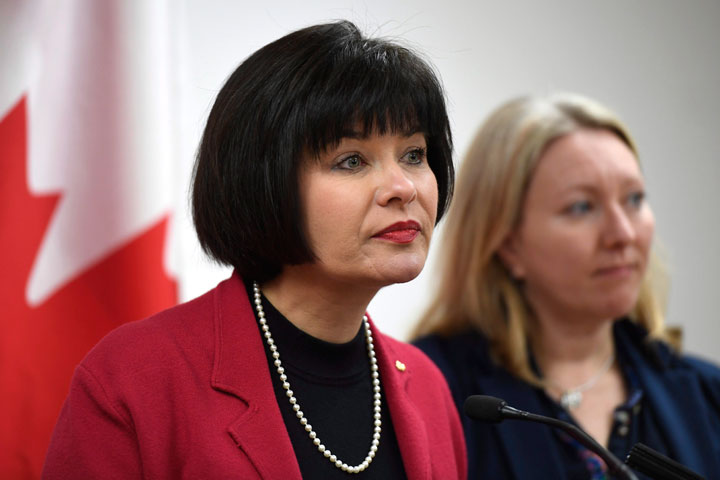The price of legal marijuana may vary “a bit” between jurisdictions across Canada, Health Minister Ginette Petitpas Taylor said this weekend, but overall, the cost of getting high should be low enough to compete with the illegal market.

Last Wednesday, Prime Minister Justin Trudeau confirmed that the century-old prohibition on cannabis would be lifted on Oct. 17, 2018, just over 16 weeks from now. That will give Canadians access to the drug via legal channels for recreational purposes, through online sales and government-run or licensed stores.
WATCH: Trudeau announces marijuana will be legal in Canada on Oct. 17

Petitpas Taylor, speaking to The West Block‘s Eric Sorensen from Moncton, N.B., confirmed that Ottawa expects that the cost of that pot, per gram, will not be uniform across the nation.
“From jurisdiction to jurisdiction, there’s going to be perhaps a bit of a difference, but we want to make sure the price consistency is going to be very consistent with what’s available now on the streets,” the minister said.
READ MORE: Here’s how new police powers could change when you get a roadside breathalyzer test
Predictions surrounding pricing have ranged, but the average cost of a gram of marijuana is expected to hover just under, or at, the $10 mark. Black market prices can reportedly range from just under $7 all the way up to $15 a gram, depending on quality.
Some ‘flexibility’ around home-grows?
Petitpas Taylor also addressed the lingering uncertainty surrounding growing plants at home. Quebec, Manitoba and Nunavut have all said they want to ban home cultivation outright, but the federal law will allow for four plants per household.
“Provinces and territories may change that amount to maybe even one plant, if they so choose,” the minister suggested, adding that Ottawa wants to be flexible but the preference remains that “we have a law that’s consistent in all provinces and territories.”
READ MORE: Marijuana to be legal in Canada starting October 17, Trudeau confirms
Petitpas Taylor said that experience in U.S. states has shown that when recreational marijuana is legalized, most people don’t choose to grow it at home.
WATCH: Unpacking the Politics: Passing the pot bill, negotiating NAFTA and the summer ahead.

Still, the demand for the product in some areas may outstrip supply at first, the minister acknowledged, which could lead to more people exercising their green thumbs this winter.
“I have to say I truly believe, I’m confident, that Canadians, if they choose to do it, they will do so safely and responsibly, just as they do when they make wine or beer, or even grow tobacco.”
FROM THE ARCHIVES: Why you may not want to grow your own smelly, fussy and humid legal pot
For now, the government says its main focus remains on education — particularly among young people and drivers who may feel they can operate a vehicle safely after consuming the drug.
Strict new laws will be coming into effect that will give police expanded powers when it comes to detecting and charging people with drug or alcohol impairment behind the wheel.
— Watch the full interview with Health Minister Ginette Petitpas Taylor above.


Comments